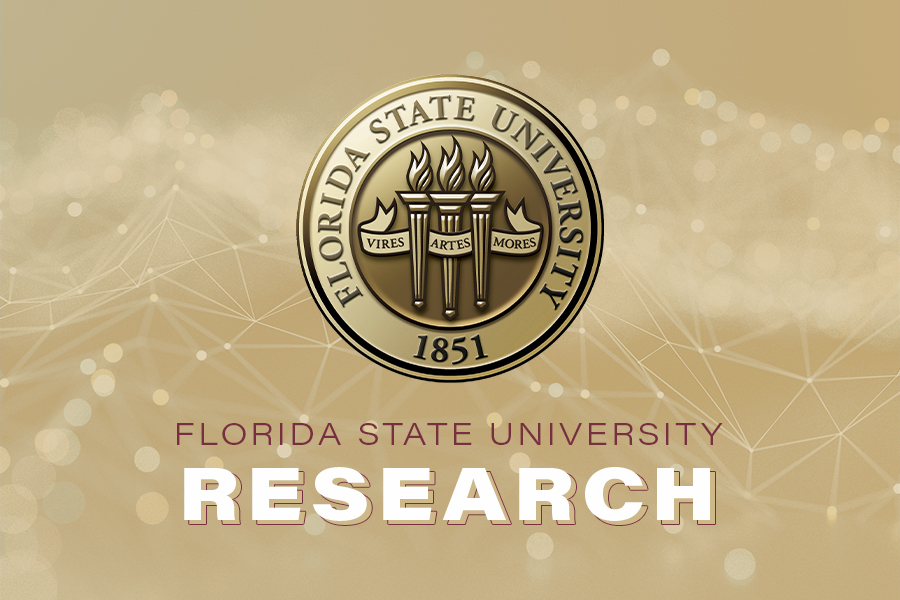
A project using artificial intelligence to aid older adults with Alzheimer’s disease earned the top prize at a Florida State University competition designed to develop interdisciplinary research teams tackling complex issues.
The project, which unites faculty and staff members from the College of Communication and Information, Department of Art, College of Medicine and FSU Facilities, will receive $50,000 in internal funding from the FSU Office of Research. The team is developing a project called DeepCare, which uses AI to improve social connectedness and emotional wellbeing among individuals with Alzheimer’s disease and dementia. Alzheimer’s is the sixth-leading cause of death for adults in the United States.
“Traditional approaches to tackling this problem are usually static, without too much customization for a particular population or toward a particular person,” said Zhe He, an associate professor in the School of Information and the team’s principal investigator. “We think artificial intelligence is going to be a great tool to help us customize our interventions based on personal preferences and characteristics. We can also tailor our treatments based on the behavior of individuals over time.”
The team was one of five that competed in Collaborative Collision: Community+, an initiative that united researchers from around the FSU campus and local organizations to explore projects focused on community. The teams pitched their research to a panel of faculty and staff to receive up to $50,000 to support their work.
“The research supported by this program is fascinating because of its interdisciplinary nature,” said Interim Vice President for Research Mark Riley. “Society has problems that can’t be solved by a single academic discipline. That’s where a university such as Florida State can make a major contribution, because of our ability to bring together researchers from a variety of fields to look for solutions to these complex problems.”
The community theme was a natural fit for an initiative focused on interdisciplinary questions. Many FSU faculty are engaged in participatory research programs, in which members of the local community are part of the research process and are empowered to solve problems on their own. Others study communities in all sorts of forms — those made up of people, animals, businesses and other entities that make up complex interdependent systems.
“Whether we’re talking about community development, community performance, community engagement, community health, community resilience — these are all community plus something else, and without that something else, you don’t quite get the full picture,” said Mike Mitchell, assistant director for research strategy and impact in the Office of Research Development (ORD). “So Collaborative Collision: Community+ welcomed anyone and everyone whose research, scholarship or creative pursuits involved community, however they chose to define it.”
Along with DeepCare, other projects that received funding will:
- Model how Florida State’s local electric grid can help increase resilience in the City of Tallahassee’s electric grid, which earned $40,000 funding
- Build a toolkit for environmental communication for numerous stakeholders interested in the health of Wakulla Springs, which earned $25,000 funding
- Develop interventions to encourage middle-schoolers from underrepresented populations to study STEM subjects, which received $10,000 funding
Every team that participated in the event included someone from outside academia, such as a local nonprofit organization or city government. The collaboration between university and community researchers creates opportunities for projects with wider impact.
“Florida State University is our largest electricity user, and if you think of FSU as a community within the larger Tallahassee community, the campus becomes the perfect laboratory in which to examine elements of a clean, resilient energy grid that may eventually benefit the whole community,” said Michael Ohlsen, clean energy plan manager for City of Tallahassee Utilities and a member of the energy resilience project.
The Collaborative Collision program started in 2016 and has grown to include three components: Connector, Incubator and Accelerator. Participants in Connector brainstorm project ideas and form groups based on their interests. During the Incubator phase, ORD staff work with teams for 10 weeks to develop their ideas and create a 90-second video explaining their goals. In Accelerator, they present their pitch for internal funding.
To learn more about the Collaborative Collision program and the internal funding programs available through the Council on Research and Creativity, visit the ORD website and internalfunding.research.fsu.edu.




